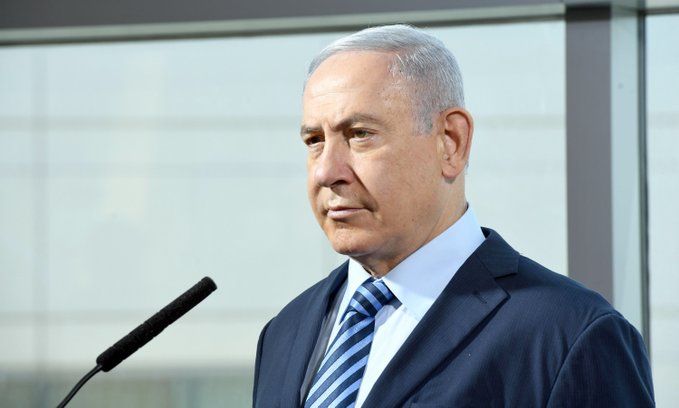After years of low-key diplomacy ties, Israeli Prime Minister Benjamin Netanyahu chaired a meeting in Saudi Arabia with Crown Prince Mohammed bin Salman, reported AFP.
If confirmed, it would be the first reported trip by an Israeli prominent leader to the kingdom and a significant step towards the Jewish state’s acknowledgement in the Arab world.
Salient points on the prelude to the landmark meeting and its possible consequences:
For many years, several Gulf Arab states have been secretively building relations with Israel on the basis of shared hostility towards Iran, with the United States serving as cheerleader as its own relationship with Tehran worsened.
That covert diplomacy burst into the open in August when the United Arab Emirates (UAE) proclaimed it was normalising relations with the Jewish state.
A similar agreement with Saudi Arabia would be the ultimate diplomatic prize for Israel. Riyadh said it would not follow its ally, but Bahrain soon signed up to the deal in a move seen as proceeding only with a approval from its giant neighbour.
Saudi permitted new direct flights from the Emirates to Israel to travel through its airspace, in another implicit indication of approval.
The kingdom’s official position is that a settlement of the Israeli-Palestinian conflict is a precondition for normalising relations, a stance that has colossal importance in the Arab world provided its status as custodian of Islam’s holy sites.
It has been squeamish about going public with any rapprochement, for fear of a backlash within the highly conservative nation.
However, relations have admonished regardless in a shift led by the ambitious young middle-east leader Crown Prince Mohammed.
In steps laying the groundwork for an eventual recognition, the country has pursued a bold outreach to Jewish figures, and state media outlets and even television dramas have emerged as cheerleaders.
School textbooks, once well known for denigrating Jews and other non-Muslims as “swines” and “apes”, are going through revision as part of the push to relook the views of a public community that has long been defamed by the clerical establishment and media.
King Salman hosted a Jerusalem-based rabbi in Riyadh for the first time in modern history in February. Referring as a “revolutionary moment, Israeli media published a photograph of Rabbi David Rosen with the monarch.
The Gulf oil monarchies and the Jewish state are all loyal US allies who have common interests over Iran. The decision towards reconciliation comes as Tehran has enhanced its influence in numerous Arab countries.
But there are also several financial benefits to connecting the wealthy Gulf states with the powerful Israeli economy.
Saudi strives to lure foreign investment to fund its ambitious Vision 2030 economic diversification plan seem to be pushing the kingdom near to Israel.
A centrepiece of Vision 2030 is NEOM, a $500 billion planned megacity on the west coast where the historic meeting reportedly took place. Observers said the kingdom requires Israeli expertise in areas comprising manufacturing, biotech and cyber security for the project.
“The Saudis recognise the important role that Israel plays in the region,” said Marc Schneier, an American rabbi with close ties to the kingdom and the Gulf, in May.
“Just a couple of years ago, Khalid bin Salman (a prince and deputy minister) told me that the kingdom knows that Israel is an integral part of their achieving their 2030 economic plan. That is a major statement and really shows the warming of the ties,” he added.
The normalisation procedure threatens the 2002 Arab Peace Initiative sponsored by Saudi Arabia which called for Israel to pull out from Arab territory occupied in 1967, in return for peace and the normalisation of relations between Arab nations and Israel.
Any steps beyond the Israel-UAE agreement which Palestinian leaders condemned as a “stab in the back” could be criticised by some regional governments and reignite criticism on the “Arab Street” that regional powers are abandoning the Palestinian people.







